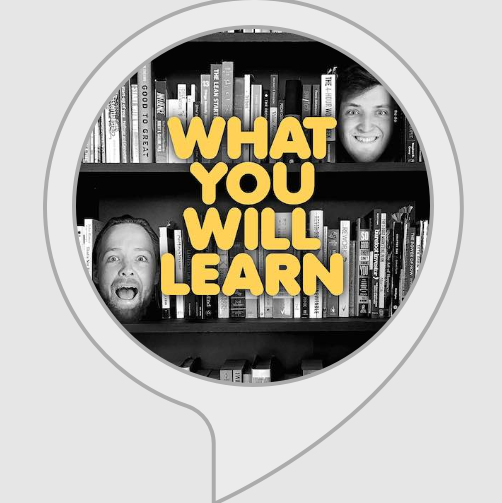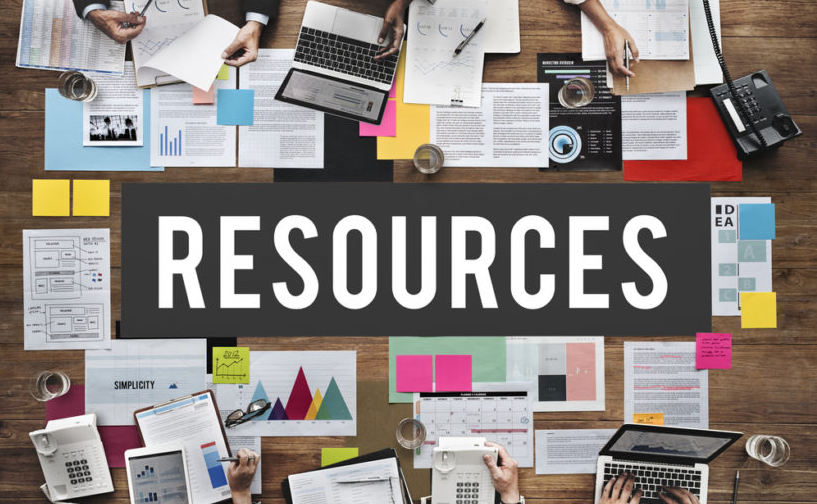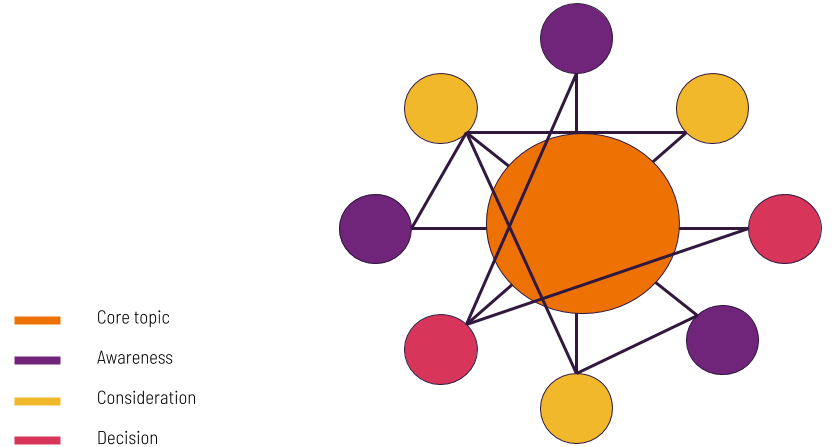The world’s leading voice search marketing experts Nick Myers and Brett Brooks from Redfox AI join the Forward Thinking podcast to share how to get your marketing strategy ready for the era of AI and Voice first.
The catalyst for starting RedFox AI came when Nick ordered toilet paper using Amazon Alexa.
There have been a lot of people talking about voice-first marketing, but to meet a team that is actually doing it makes it seem more real and essential for any digital-savvy business heading into 2020. There are only 2,000 people in the world who are working in this area at the moment, so this is a great place to start to learn about voice-first marketing strategies.
We cover a wide range of marketing topics including how your business can leverage voice search, why you need to add voice to your marketing strategy in 2020, and how to literally, give your brand a voice.
Table of Contents
ToggleWhat you will learn

- How to leverage the power of artificial intelligence and voice assistant technology to “literally give your brand a voice.”
- How your business can leverage voice search
- A simple explanation of how Amazon Alexa and Google Home actually work
- How to own your niche in search using a voice search strategy
- Why you need to add voice to your marketing strategy in 2020
- How to change the sound and tone of Alexa to match your brand
- How to build your personal brand
- Why you don’t have to be on every social media platform
- How traveling can inspire you with new marketing ideas
Resources mentioned in this episode

There were an estimated one billion voice searches per month in2018
Miri Rodriguez On The Art Of Storytelling for Business
The Artificial Podcast by RedFox AI (Nick and Brett’s Podcast – check it out!)
Book Recommendations
What business you would build on Mars?

The Etsy of Mars. People are going to want things to hang up in their new Mars homes, right? What we do is we take all the red Mars clay sand create knickknacks and sell them at a low but reasonable cost. And then we brand them so the first brand that people will always have present in their home is whatever we decided to be.
Get in touch with Nick and Brett
Brett Brooks on LinkedIn
Transcript

Nick We’re here because we just got done hosting a workshop and I did the opening keynote for the social media marketing summit that took place here in Sydney, yesterday and Wednesday of this week. The topic of the keynote was the future of social media in the era of AI and voice first.
Brendan Interesting. We’re currently in this era?
Nick Oh, yes, we are in the era of AI and voice first and as a matter of fact, that’s what we’re really trying to develop our company with. The sole focus on is helping brands leverage the power of artificial intelligence and voice assistant technology to as I say, Brett, Brett always knows I say this, literally give brands a voice. Because we can do that now through technology.
Brendan When did you guys come to the realization that AI is going to be such a powerful tool in the market?
Brett He came to the realization first and told me to realize it.
Nick I realized it. Yeah, and my story with it, it’s actually quite interesting. Our story actually, as a company, we actually started it… it’s Red Fox AI now, but we actually started as Red Fox Creative back in 2017. And my marketing is in background and communications. And I just wanted to start a business. I just wanted to know what the process was like, see if I could actually start something. We actually started Red Fox Creative in Madison, Wisconsin as a digital marketing agency, but quickly learned that it is a very saturated space. Even in 2017 there was a lot of people doing digital marketing. So in that time, I was like, well, I really like technology, what is a piece of technology that we can take to see if we can help brands develop content differently. That actually spawned our first venture into the tech space, which was AR and VR.
Nick We actually started researching a lot into the power of Augmented Reality, specifically Virtual Reality and 360 video. We actually bought a 360 video camera and just, there weren’t too many resources about 360 video at the time at all.
Brett No, there wasn’t. It was interesting to learn how to stick the stuff together.
Nick Yeah. We actually had to learn how to film it all on our own just by trial and error. He had to learn how to use Adobe Premiere Pro to create VR video and everything. That was kind of our first foray into the marketing tech kind of space and we actually got a client.
Brett Yeah, we did we. In 2017, 2018 I noticed a lot more 360 video on social media, like Facebook and all that. But you don’t see that video camera, do you? Where you can tour around the world video.
Nick Yeah, Facebook was really pushing that back when they brought that functionality out of the platform, and they don’t really push that anymore. That’s a testament I think, to where that technology kind of went. But we actually got a client. We’re doing 360 videos for him and we kept trying to push it but nobody was biting.
Brett Kind of a testament to people like to be shown the video not to control the video.
Nick Yeah, that is what we discovered. So ultimately, we had to re-pivot what we were doing. And the whole reason we’re actually sitting in this room and in AI and voice in general is because of toilet paper.
Brendan Toilet paper?
Nick Yes, toilet paper. And this is the story.
Brett I’ve heard this story like 50 times.
Nick But this is the story that actually got us into it. Now that I’ve been a part of the voice community, for you know, about a year now everybody that I’ve gotten to know at least in the United States has always had a light bulb moment where they’ve used an Amazon Echo or a Google Home or something that just, the light bulb went off. For me, it was back in January of 2018. After I’d gotten an Amazon Echo for the holidays. And it was a very, very cold Wisconsin winter. It was at least minus 25, minus 30 outside and I realized I’m out toilet paper as I was standing in my bathroom. My Amazon Echo was an earshot. And I was like, “I wonder if that thing can order it for me because I clearly am not going outside.” I could use my mobile phone, but let’s give technology a try here.
I said, “Alexa, I need toilet paper.” Alexa responded saying, “Cut now 15 Count $5 and 36 cents courtesy of Alexa, would you like to buy it?” And of course, I said yes. And because I was a member of prime pantry at the time through Amazon in the United States, it was at my doorstep in less than 24 hours.
And that whole interaction took less than 15 seconds. That was when my light bulb went off. And I said, “Okay, there’s something here with this.” And it’s more than just a fad. This is an actual usable piece of technology that can improve our lives, much like the internet did, much like mobile did. And I think this is going to be the next iteration of this tech evolution we’ve been experiencing. When that happened, I actually just kind of, opened the curtains if you would, into artificial intelligence in general, learned everything I could about it. I found some really good folks at Microsoft working on some stuff. And I read all their white papers and research and books.
I’ll be honest, YouTube has become a big help. I’m serious, I tell Brett all the time. We’re living in an age where you can learn anything, as long as you make sure what you’re learning is verifiable to some degree. You can learn anything because we have the largest database and repository of information in the internet. A lot of the artificial intelligence knowledge that we both have, and that I’ve been able to learn has been from just using the resources that we have and then meeting people by proxy through all this. That’s our story and how we got involved in AI and invoice. And it seems really simple, but I think the simplicity of it is just to a testament as how the technology is exploding because of how simple it is to use.
Brendan Yeah. And on the topic of voice first strategy, one-fifth of all the queries on Google in our Voice Searches I read the other day, which is pretty impressive. What other ways can businesses leverage voice to increase their sales, brand awareness? What kind of areas are you working with businesses on the voice for strategy?
Nick Yeah, absolutely. That’s a fantastic question. You brought up a good point right away. And one of the key things that are going to impact organizations and brands more so than anything is the Voice Search. Because everybody has been so accustomed to optimizing for standard Google Keyword search. The way we talk and ask for questions is different than how we type. It’s going to be very important for brands to start thinking about, okay, how can we now optimize our content for conversation, versus optimizing for keyword search and just standard, you’re reading an article as opposed to having to listen to something back. That’s something that brands need to start paying attention right away.
One of the other things that we do also is just help brands figure out where this fits into the bigger picture. Because when this started first coming to market, at least with Amazon in 2014. There were a lot of bigger brands, at least in the US who were saying, okay, we need an Alexa skill. Or, okay, we need a Google action in 2016, after Google Assistant came out, but that was they were just firing from the hip, there was no plan, there is no strategy.
Nick We’ve discovered, as we’ve talked with more people, and even some of the people we worked with, they’re going to deploy voice within your brand, you have to be solving a pain. What is a big problem that your customers have, that the people you work with, have that voice can solve and make easier. Part of what we do too, is we kind of open up the box, if you will, to help and figure out where this can fit in. We’ve actually had a really good discussion with a company called TurboTax in the United States over the past couple of weeks. They’re really interested in the Voice Search capability. I even brought up the idea to them, what if you could complete your taxes, just by talking to Alexa or just by talking to Google and how easy that would be. It depends on the brand, of course and the vertical niche that they’re in. But there are so many different use cases.
Nick But I would say the first thing is just figuring out what your pain is and how voice can solve that to make it easier for your customers. Then, of course, optimizing for Voice Search so you can be discoverable. There’s actually something going on right now with voice as well, where if you want to be the thought leader in your niche to answer questions for your customers, now’s the time to do that. What we’re finding is how voice assistant devices carry out search. It’s very specific actually. So give Alexa for an example. So say, I ask Alexa question what Alexa will do is Alexa will search its internal database first. It’s internal programming that Amazon put in there that uses like weather, traffic, all that basic stuff to answer a question.
Nick If Alexa cannot find it there, it will go out into something called the voice web, which is the ecosystem of all of the different skills that people have created for Alexa and it will pull the information from there and then if I can’t find it there, it’ll branch out into the general web search. Which oddly enough Alexa uses big which I just find fascinating. Alexa’s primary search engine has been-
Brett Even if your company doesn’t think they can benefit from voice, just having your company on there with a simple question and answer skill about your company, would benefit your company because right now it’s in its infancy. It’s like having, the only company to have a website in the late 90s. Do you know what I’m saying? When everybody was hitting on the gold rush to get all of your website on the internet. Now it’s like there are no skills, or you can equate it to 2008 with the iPhone. [crosstalk 00:09:36].
Nick Mobile Apps. That’s one of the benefits of Voice Search now, is if you even deploy a simple question and answer based skill related to your brand or the niche that you’re in. You’re going to own that space and search because the way the AI works, it will keep going back to sources that are trusted, that is verifiable, that it can pull good information from. If you’re one of the first brands, they’re answering these questions for people, it’s going to keep using you. And then anybody else, competitors who come and try and develop a similar question to answer based stuff for increase the quality of their content for search, using some of these factors, it’s going to be harder for them. Again, it’s one of those things where now is really a good time to invest and even just start some discussions internally as to how you can benefit and get on board with it.
Brendan Early-Stage businesses that are listening now, you’ve piqued the interest in Voice Search. What are the next steps? How do they start this process?
Nick If you want to know more, contact us at Red Fox AI, no. Honestly, you have to take a look at how you currently respond to questions for your customers. What FAQ pages currently exist on your website? Can those FAQ pages be condensed into something for voice or do you need to completely redesign those for conversation? How are you currently if you’re a brand that handles customer service traffic, how are you currently handling our customer’s service traffic? Do you have a call centre? Or do you have a chat bot? Can any of these components be broken down and condensed into Alexa or Google, they’ll be able to answer? Those are some starting places. It’s just that core basic analysis of what you’re currently doing if it can be broken down and transposed into the voice space relatively easy.
Brendan Can you tell me a story of a client that you’ve worked with that have implemented these strategies and what it’s done for them?
Nick Well, that was more of like Alexa asking as a co-host, when it comes to Voice Search actually did some subcontracting for a company in Madison called Nordic. I actually wrote a Voice Search report for them because they are interested in how do we become more discoverable over voice and how do we do that and their niche or their vertical is within healthcare? They actually are a company that subcontracts with a company in Madison, Wisconsin, that is one of the largest provider of electronic healthcare records called Epic Systems. Nordic, of course, their whole business model is contracting with Epic, and there are a couple of other subcontractors in the space that they wanted to own Voice Search discoverability for, say somebody sitting in their office saying, “Hey, I need a contract or, I need to implement electronic healthcare record. Or I need a company who can consult on my Epic software.” Or something like that.
Nick I laid out a whole report for them to kind of outline some of these core strategies that they could implement relatively quickly to begin optimizing their strategy for voice.
Brendan Awesome. And what has you guys most excited about marketing in 2019?
Brett Yeah, we have two other people in business with us. But they couldn’t come over here with us. There are just reasons. They’re the marketers. I’m more of the builder. [inaudible 00:12:46] going to talk about the marketing side.
Nick Yeah, well, I guess you know, my background actually in all this is, I’m not a tech person. By any fathom of the imagination. My background is actually in marketing and communications. I’ve just always found tech fascinating. I’ve always kind of had an affinity towards it. Brett and I have been building computers for a number of years. So even just simple things like that have always fascinated us about technology. My background in Marketing and Comm is actually I think really helped us do this because we kind of know, okay, from a marketing standpoint, from an organizational standpoint, if I’m a marketer in an organization, how am I going to approach this because more than likely, somebody in a large scale organization who’s going to invest in this technology is going to be a marketer, because marketers are always looking out for new ways that they can reach core audiences, increase brand messaging, different things like that.
I think looking ahead at marketing in 2019 to 2020, I think specifically, we’re going to see a lot more growth with voice. A lot more companies beginning to think about that Sonic branding that, the audio they can give to their brand as opposed to just the visual that we’ve been accustomed to for so long, and voice allows you to do that so easy. Whether that be, you just use the native voice within Alexa or Google, which using a markup language called SSML, you can actually do some really minor tweaks to the pitch, the sound, the tone of Alexa or Google.
Brett Creepy kind, you can make it whisper. It’s really creepy.
Nick Yeah, you can. You can identify a tone even with them to your brand. Or you can even do a pre-recorded audio, say you’re a larger brand that already has like a voice or somebody who does a voiceover that people are used to, you can just lift that and then put that right into what you’re creating in the voice space as well.
Brett I was throwing our podcast episodes on the code. So you can play our podcast episodes through Alexa. That was pretty cool. Yeah.
Brendan Amazing. I didn’t know it was so flexible.
Nick That’s what’s beautiful about where the state of the technology is to. There is no one right path to follow. Everybody in the space is trying to figure it out. We’re trying to experiment. Everything is on the table. Even companies, we actually had a good meeting with Ozzy [inaudible 00:14:53] from Amazon this week too. She works here at the Amazon office in Sydney. She works on the Alexa team and she said, “The time that we’re in right now is amazing because you as, third party companies in the mix contest, what we’re building, from the Amazon standpoint, from the Google standpoint, and give us feedback that we can actually use to change the technology.” If there was ever a time to be a part of this, this is the time we’ve had so much fun, it’s been great.
Brett Especially it’s been Sydney, Australia visiting year.
Nick Exactly. I never in a million years, but thought that the business we started would bring us to Sydney, Australia, a dream, I’ve always had.
Brett Walks in and he’s, “Brett, want to go to Sydney, Australia?” I’m like, “Sure, sounds good.”
Nick It’s not even places like this, but because of what we’re working on. I’m actually going to Thailand in November as well to speak on a panel about AI voice and tech in the hands of youth. For me to with my background in Marketing and Comm, I’ve noticed there’s a lot of people in the voice space who are working on really, really cool stuff, but they don’t know how to promote themselves. A lot of what I’ve been doing is, I love social media. For me, it’s just very easy to be really active on LinkedIn, be really active on Twitter. I would say those two platforms have gotten us so many opportunities. This one right here.
Brendan Here we are right now.
Nick Exactly from LinkedIn.
Brendan You touched a bit on personal branding, I guess with LinkedIn and Twitter. What are some ways that again, early-stage people listening at home, they might want to take their business to the next level, they might just be starting out. How can they leverage these social media platforms? Should they focus just on one should they have a spray and pray approach across many? What are you guys’ take on that?
Nick Now? That’s a great question too.
Brett Once again, Nick is the Master of Social media.
Nick Brett has gotten all these opportunities of how good I’ve been able to build my personal brand. But for me, actually, I started building my personal brand about two years ago. I found a really good mentor who’s become a very good friend of mine. Her name is Mary Rodriguez. She was the head of the global internship program at Microsoft in the United States. And she’s all about personal branding and helping people build their personal brand identifying what they want to do. I came up with a personal brand statement that kind of identifying where I’m at now and where I want to go. And the rest is kind of history. I started just talking more on LinkedIn about artificial intelligence about voice assistant technology. I started making LinkedIn videos. I did this series called tech tips with Nick, where I would just dive into like a topic for two to three minutes on LinkedIn about AI, or voice.
Nick Once you start doing that consistently, people just start associating you with that. At least in Madison, and sort of in the Midwest of the US now I’m kind of like people, when they see me, they’re like, “Oh, you’re the AI guy. Oh, you’re the voice guy?.” They just start associating you with what you’re working on. And the same could be said for Twitter. Most of the tweets that I publish every day are related to something in AI something in voice, of course I have some fun with my own personal stuff, too. But at the crux of it, I’m always trying to promote my brand where I want to be. That’s empowering people through these amazing pieces of technology to accomplish great things.
Brett Yes, you need to do this, a lot of work. It’s a lot of work. You do it 24/7 basically. Personally I can’t do that. But you, go for it man.
Nick And for me my primary platforms are LinkedIn and Twitter. I think part of the mistake that a lot of people make is they think they have to be on everything. They think they have to be on LinkedIn, Twitter, Facebook, Instagram, but you don’t. You can be on one or two platforms, really focus your time and effort on building your brand there and I promise the results will happen.
Brendan You guys touched on that you like to travel on your LinkedIn profile, it says you’re a travel addict, do you like getting outside of your comfort zone? What do you learn when you guys go away to different countries and experience the different cultures and the marketing in those countries?
Nick Yeah, absolutely. I’ve always loved to travel. I’ve always as I’ve grown into my adulthood here, I placed emphasis more on travel than I ever have before in my life. And I think what really kick started that for me was when I did a study abroad to Greece, back in 2014. That was my first international trip. To be able to just be thrown into a culture like that. And it was a different with a study abroad because it wasn’t so exposed to the tourist nature of everything. We were in a small town in the middle of Crete, one of the big islands in Greece, drinking and eating our way and learning, through the country. And I learned so much. And I tell Brett, the story very often. One of the biggest cultural immersion moments I had, that finally, to me was like, wow, the world is not so big anymore, was when I was on a bus trying to get to a city in Greece, and we got lost and we were the only two people on the bus that spoke English.
Nick Everyone else spoke Greek, French, German, and we had to use our hands and maps to try and figure out where to go. And for me that was, it was just such an eye opener. Ever since then, I’ve kind of been addicted to travel as much as we can get it in. Brett here this is actually his first international trip, so we rip the band aid off hard with him.
Brendan That 14 hour flight from LA to Sydney.
Nick But being in Australia too, I love that because I don’t know. I think the biggest takeaways here is that everybody is just so fascinated with the stuff that we’re working on. Because it seems like back home everybody thinks so Australia they just… I don’t mean to be culturally insensitive here but people in the US just are like, “Oh, the koalas and the kangaroos.”
Brendan That’s all they think about.
Nick That’s all they think about but now-
Brett Oh my god, how many people warned us about deadly spiders.
Nick Oh, yeah, and then they just think of the big spiders.
Nick And it’s like now that we’ve been here and people are messaging us back home like, “Did you see this?” I’m like, “No, we’re in the city. We’re taking in everything.” We’re working and it’s just been cool getting to know people in Australia. What I’m finding as we been here is it’s not even just people from Australia. There’s people from the UK here. There’s people from Ireland here. There’s people from all over the world who come here to live and work and it just seems like such a positive ecosystem of people for growth.
Brett Everyone’s nice too. Everyone’s nice here
Nick Yes everyone’s insanely nice. I tell you, to getting used to being in an Uber on the left side of the road has been a bit interesting.
Brett First day here it was, subconsciously I was thinking we’re going to crash our car.
Nick Yeah, I think Brett and I can agree it’s going to be hard for us to go back home from this trip just because of the amount of people we met and friendships we’ve been able to form since being here.
Brendan You guys are definitely have to come back next year.
Brett That’s what we’re thinking.
Nick We do. We want to try and make this a yearly thing.
Brett We’ll bring business partners with those two.
Brendan Even set up the Australian office right here in Sydney.
Brett Yeah.
Nick It’s funny. Brett and we have a joke we’re, let’s get the business to a point where we can just be, “Okay, we’re picking it up and moving it to Australia and just work remote.
Brett I would do in a heartbeat. It would be great too work down here.
Brendan Going to the struggles now. What’s the main thing in your business black box at the moment? What problems are you guys trying to solve?
Nick The problems that I encounter is so new, there’s not a lot of information out there to help you if you have a problem.
Brendan And what the information to trust as well.
Brett Correct? Yes. So sometimes it’s just guesswork. And if you guess wrong then, oh, well try again. If you guess right then great, just keep doing that.
Nick Yeah. Especially as Brett’s been learning how to code and program Alexa skills and Google actions. Like he said, there isn’t any resources out there.
Brett Yeah, sometimes there’s nothing out there, because it’s so new. You can find resources to program for websites. That’s not the same as Alexa and Google. But you can kind of manipulate it a certain way and change the code around to have it work but that’s where the guesswork comes in.
Brendan How does the average business find their own bread? Where do we look?
Brett My number? I don’t know actually.
Nick That is one of the things about the space right now too. Well there’s such a limited number of people in the space. We’re looking globally, maybe 2000.
Brendan 2,000?
Nick 2,000 people who are actively working in what we’re doing every day. It’s not very large. And that’s one of the things we’re all talking about is, well, if this is going to line up, much like the website boom was in the late 90s, early 2000s and mobile apps in the late 2000s. What is the supply and demand going to look like here because as we know, if there’s low supply, but a lot of demand that could potentially drive the cost of all this up substantially, which would probably be great for us. I think it’s going to cause a lot of problems in the interim, because there’s going to be such a high demand and not enough qualified people who actually know what to do. This is why Brett and I actually complement each other so well.
Brett again, is everything tech based. He does all the program and the coding. I’m really skill when it comes to conversational design, and helping people design for conversation then that UIUX of the whole experience we’re trying to create.
Brett He’s just a great talker.
Nick Yeah, communication background helps with that. That’s where we actually complement each other really well, but there’s even a lack of conversation designers, there’s a lack of people know how to code, just because it’s such a new space.
Brett Yeah. So I’ll build it up. I’ll build up the back end, then we’ll adjust it, flow probably for a conversation.
Nick We have a full conversation designed for [crosstalk 00:24:13].
Brett You want to think about as a person who is talking to another person on a machine.
Nick Right. Yeah, thinking of, one of the things that we try and do as we work through this is, you have your user persona. So the person who is actually going to be using your skill or action, and then the system persona. And because of the way Alexa and Google functions, and it’s conversational human like nature, people are automatically going to assign a persona to that anyhow. You really want to make sure as you’re designing or skill or action, you’re building a solid system persona that, embodies what the user is actually going to be experiencing. A lot of people think, “Oh, I’m a developer who’s been making apps for 10 years, it’s going to be easy to transfer into building stuff for Alexa or Google.
Well, in fact, it’s a lot harder for some of these folks because they’re so used to designing for a screen and a path that you’re trying to get somebody to follow. Whereas in voice, there could be an infinite number of paths and infinite number of things that somebody could say, to try and get a result. So it’s just an entirely new way of thinking and developing for technology that just so many people aren’t used to. For the first time ever too, we’ve always had to adapt to the technology reviews. We’ve had to learn how to use personal computers. We’ve had to learn how to use smartphones, we’ve had to learn how to use televisions and radio and all this but yeah, this technology has to adapt to us.
It has to adapt to our conversation, our speech, our language, and that’s kind of throwing a lot of people off too, because we’ve just been so accustomed to having to learn it. Whereas now everybody for the most part knows how to speak. Anyone could go over to an Alexa or Google and use it.
Brett You don’t realize how many variations of a sentence a person may say and take the time for voice.
Nick We’ve spent hours even going over one or two sentences.
Brett We’ve got up to a what? 50 lines?
Nick Yeah.
Brett Different sentences. It’s the same sentence but you just adjust it, “Oh they might say it this way.” And then we’ll publish that. Then we’ll be using Alexa and she won’t work properly. And we’ll go, “Oh, we forgot that.”
Nick Yes. Because we would say something, and we’re, “Oh, now we have to go back inside and add that.” There’s a whole process to designing for this stuff and designing for conversation that is just so unique. I think that’s what’s throwing a lot of people who’ve been developing apps and software for so long off, because they can’t pull themselves out of having a visual versus having a non visual.
Brendan It’s definitely a big adjustment. Talking about business tools now, are there any tools $100 or less that you guys are using that Red Fox, that have made a big difference in the last year?
Nick Yeah, well, actually, there isn’t that much overhead in what we do, which is good for us, because a lot of what we do, so when we work with Alexa, for example, for using AWS, which has Amazon Web Services, which has a very large free tier. And of course, as we move through and get more clients and everything, we’ll have to readjust to that. But AWS is relatively low cost. The Alexa developer console is completely free.
Brett I think they make it free and low cost because they want people to use.
Nick Right, they’re pushing people into it. Same with Google. Google Cloud network, relatively low cost, and then to build on dialogue flow is completely free.
Brett Completely free, yeah.
Nick Yeah. A lot of the resources that we’ve actually had to purchase have been more educational in nature than anything. Different courses that we can find.
Brett I think our podcast is more expensive.
Nick Yeah. Actually I do. What we do with that, that’s probably more expensive too. But yeah, a lot of what we do because the tech companies are trying to push people into working with it. It’s such a low cost to get into right now if you want to start experimenting with it and using it. A lot of the cost for us when we work with clients, actually, we’re just billing for our knowledge and our expertise and we’re able to help them leverage this at this point.
Brett The time it takes to build.
Nick Right. That too. Because we have about three pillars that we have underneath our Red Fox, within our company right now. The first being strategy and consulting. That component where we help brands figure out where this fits, how we can help you design for voice. If you need something built, let’s design it from a conversational standpoint, that aspect of it Voice Search optimization. Then we have the custom development where we can get really nitty gritty with the development that a brand would want. If they need something very custom and specific, maybe some custom API’s, we take that and we build that from the ground up using conversational design, using situational design.
Then probably even the larger component that I’m really trying to focus on or we’re trying to focus on is education. The speaking, the workshops that we’re planning and hosting and have been hosting, we’re hoping on getting an E-course up and running pretty soon as well. Because there’s a lot of people in the United States who are building software as a service platforms. They know how to make it easier to build an Alexa skill or Google Action. But that’s all fine and dandy. And I really believe leaving what these people are doing. They’re incredible in what they’re building, but most of the organizations that they’re trying to target, have no idea even where to begin. In our case, we’re kind of trying to hit everything threefold, where we want to help these brands figure out where it can fit in. Where their roadmap is, where they can start, because some of the supplementary tools are great. But if you didn’t know where to start, it doesn’t really matter.
Brendan Interesting. You mentioned the steep learning curve. You’ve been watching YouTube videos, the white papers. What about books? Are you guys, big readers?
Nick Yes, I actually I’m diving into a book right now. It’s the basics of conversational design, or conversational design something but it’s a textbook that’s like this big. There’s only like two of them out there. There’s one that a lot of people in the voice space read by Kathy Pearl, who works at Google. I know that’s a pretty popular one. And this one, my friend Noela Charity, who works at Microsoft on Cortana. I saw her, she recently accepted a new position a couple months ago, and she tweeted, and this book was in the back, I’m like, “Well, if she has the book, it’s probably a good book. So I’m going to buy it too.”
Brett I’ve basically just been focused on programming books, like coding and all that. But you’re more on the program for voice.
Brendan And what about more general marketing books, any favorites that stand out for you?
Nick I haven’t, truth be told, because I’ve been so involved in this recently, I haven’t really read any books in marketing. There’s a lot of books out there on social media and how to optimize your social media strategy and some different things. There was a really good book I read probably a year ago that just actually dove into the language we’re using social media, and how you can mess with your copy and your type and the actual language. You’re using your social media posts to resonate with people a bit more psychologically. That was a really interesting book. I wish I could remember the name of it. But yeah, for me, it’s been solely focused on all the voice stuff.
Nick If you’re looking to just get some really good knowledge on voice itself, there is a book called Talk To Me by James Vlahos. That’s a really good book. And then a really good book on artificial intelligence that I’ve gotten so much value from, is called Life 3.0 by Max Tegmark, that is a fantastic book that dives into the current state of AI, where we’re headed with it and how we’re heading into, a new stage of life pretty much. That we’ve come from life 1.0, we’re currently in life 2.0 and the next evolution is, 3.0. It’s a very good book.
Brendan I guess delving into the future now. What do you predict 2025. We’re sitting here with round two of the podcast? What does the landscape look like?
Brett I feel like Alexa and Google will be more like, smartphones are basic
Nick Yeah, well actually there’s some numbers floating around in the voice community now that we’re expecting this to hit pretty much consumer mainstream in the next one to three years.
It’s actually interesting to know, a recent report that came out Australia is actually ahead of the US in terms of early adoption of voice.
Brendan Really?
Nick Yes. Which I found fascinating, too. But I think 2025, we’re going to pretty much see a lot of organizations on voice. We’re going to see people feeling more comfortable using it out in the open. Whereas now people are using voice technology in their home and their office places where they feel more confined because of privacy, which is a whole different discussion we can have.
Brett People don’t realize you can use them on your phone.
Brett Those are apps, Alexa app, Google app.
Nick Yeah, as a matter of fact.
Brett You don’t need to buy the thing that sit on your table. It’s in your phone.
Nick I think more people are going to be using Google Assistant on their phone, or Alexa on their phone. Or maybe if Apple gets their stuff together here a better version of Siri on their phone, they’re probably even the smart speakers. Actually, smart speakers of the device that everybody associates with voice. But I think the smart speaker is just the catalyst to all this, I don’t see the Long Term Evolution of voice being a smart speaker. I really think mobile is going to become unleashed here in the next couple years. And more people are going to be using voice on mobile, and through hearable devices like Apple air pods, and different things that just make it so easy to use. And then we get into my crazy theory where I think, maybe 1015 years down the road, we’re going to have ambient computing, where we just have like, everywhere has like microphones and you can just like be walking down the hall and talk to technology and computers and crazy stuff like that.
One of the things to that I think will have is we’re going to have an ubiquitous voice system. I know now you have to use either Alexa, Google Assistant, Cortana, Siri they’re all separate. I think we’re going to have it where they’re all combined in some way on the back end, where you can have a conversation with Alexa, that then can carry on to Google that can then carry on to Cortana or Siri. It’s a seamless experience. Because the more we kind of siloed these different voice assistance, the more it’s, in a weird way branding. Where you have to choose one and stick with that. But maybe the functionality of this one isn’t as good as this one. Or maybe what you can do with Google isn’t as good as Alexa so that that silos people.
Nick I do know that tech companies actually are actively working on combining them all at the back end so people can have a seamless user experience.
Brendan Right? It’s exciting.
Brett It is.
Brendan Nick, Brett, thank you for all the value that you have it dropped on our audience so far, really interesting area voice. I’ve got a lot of homework, a lot of white papers, a lot of YouTube videos to watch to get up to speed. We’ve come now to the abstract question section of the podcast, where we love to ask our guests a few creative and abstract questions. Are you guys ready?
Nick Love it. Yes, let’s do it.
Brendan All right, so if you could have a billboard that all business owners would see it could have text visuals, maybe even some kind of voice mechanism. Where would you put it? And what would it say?
Nick Oh, that’s a question, a Billboard.
Brett You can put anywhere in the world.
Brendan Anywhere in the world.
Brett Oh, man, I would just project it onto the moon.
Brendan There you go.
Brett Our logo.
Nick I actually like Brett’s answer there. I’m going to go with Brett’s answer. Let’s put it right on the moon so anybody can see in the nighttime sky. “Give your brand a voice Red Fox AI”
Brendan There you go folks. AI, I like it. Some good visibility as well.
Brendan One other question I had. You guys have that you’re big Marvel and Star Wars fans on your profile. There’s something that I’ve been looking into recently, supervillains. These guys have a lot of loyal followers. They build that loyal following keep their followers engaged. You think about it. How many times are their plans foiled? But their henchmen their minions, they keep coming back. Which supervillain do you guys resonate with the most?
Nick Me, I know who it would be. And people I resonate with Thanos. I do. I don’t want to completely wipe out half of the universe. But when you really get down to him is like a character and a villain. He’s on like this, no matter what this crusade of a higher purpose internally. For me with what I’m doing with AI and voice on more of a positive end, to help educate people and empower them through this technology. I really don’t want to stop at anything, until I get my mission accomplished of doing that. And, of course, if I can wear some gloves where I can just make up a reality to have just happened. That’d be great too.
Brendan And the final question, are you guys ready for launch?
Brendan Because you’re on the first flight to Mars with Elon Musk and the first settlers about the SpaceX Starship rocket. What business do you start when you land on Mars? And how do you market it to the new Martians?
Nick People are going to want things to hang up in their new Mars homes, right? What we do is we take all the red Mars clay sand and create knickknacks and sell them at a low but reasonable cost. And then we brand them so the first brand that people will always have present in their home is whatever we decided to be.
Brett I was thinking, selling air. Selling oxygen.
Nick Oh, that’s actually a good idea too. Either the Etsy of Mars or selling people oxygen, because I guess we need that to live.
Brett But I don’t even if Martians need it. You want to market the Martian.
Brendan Very good answers. Guys, thanks so much for coming in. Taking time out of your international trip. Is there anything you guys want to say before we wrap up? And how can people get in touch?
Nick The podcast has been incredible Brendan. I have really enjoyed our time in Australia, we will be back mark my words. I love it here I really do. But if you want to get in touch with us, in one of the best ways to do that is find me on LinkedIn. Just search for Nick Myers I’m one of the only red-haired Nick Myers you will find on LinkedIn. You can always send an email to info@red-fox-AI.com. We are currently in the midst of getting a new website up and running. We run a podcast called the Artificial Podcast and we do weekly episodes where we bring in people from all over the world who are working on really neat things in AI and voice and we just kind of break down topics in AI and voice to help people understand how this technology is impacting all of us both personally and with an organization.
Brendan I’ll put everything that you guys have mentioned in the show notes today that you can find at metigy.com/podcast Nick and Brett once again. Thanks so much for coming on.









